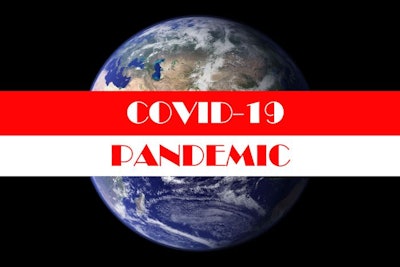
We are living in scary times in the United States with social, economic and political instability all provoked by the growing COVID-19 crisis.
Never waste a crisis
During these times of fear, opportunists will often attempt to take advantage of the chaos to get their fringe message across to a broad audience. Animal agriculture deals with a constant opportunistic opponent: organized animal activist groups.
One message I’ve seen appear recently is the claim that animal agriculture is to blame for COVID-19 and could be spawning more novel diseases which threaten humanity. In mid-July, the most well-funded and organized activist group, the Humane Society of the United States, issued a blog post claiming intensive agriculture is culpable for diseases like COVID-19.
The post cites a United Nations’ report – “Preventing the Next Pandemic: Zoonotic diseases and how to break the chain of transmission” – which identified “increasing human demand for animal protein, unsustainable agricultural intensification and increased use and exploitation of wildlife” as its top “disease drivers.”
The activists said this aligns with their own goal of discouraging livestock farming and encouraging a vegan lifestyle.
Epizootic disease
There is a bit of truth to this. WATT Global Media recently covered the remarks of Dr. Matthew Stone, deputy director general, international standards and science at the OIE (World Organisation for Animal Health), who said the OIE does believe COVID-19 had a zoonotic origin. However, it was likely spread in a so-called wet market, where live animals, wild and domesticated, are sold and sometimes slaughtered on site. Stone did go on to say mass livestock production and growing intensification of agriculture are considered factors for accelerating the spread of epizootic disease.
We also recently covered a report by the Food and Agriculture Organization of the United Nations (FAO) which concluded its extremely unlikely people can contract COVID-19 through exposure to poultry and other livestock or the handling or consumption of animal carcasses.
Run a clean operation
How well this message will be received by the U.S. policymakers and its voting public remains to be seen. Likely, it will be lost in the shuffle as other issues dominate public attention in 2020. Moreover, extant market research shows the public’s concern with more abstract issues like animal welfare diminishes when shoppers are trying to stretch their dollar.
The COVID-19 situation is pushing processors to elevate their sanitation and worker safety standards, possibly permanently. We’ve already seen what kind of damage animal disease can do livestock due to the avian influenza crisis earlier in the decade and the continuing African swine fever crisis in Asia.
For the poultry industry, as well as the rest of livestock farming, the best way to prove the activists wrong is to run a clean, safe and transparent operation. They can say and do whatever they want, but in the U.S. the focus on sanitation of live production and processing facilities has never been higher.
View our continuing coverage of the coronavirus/COVID-19 pandemic.

















